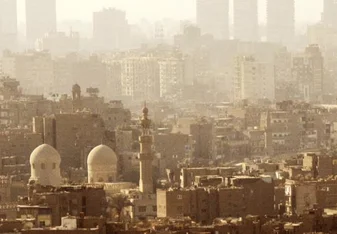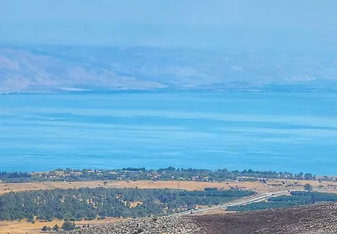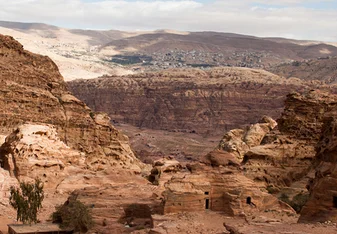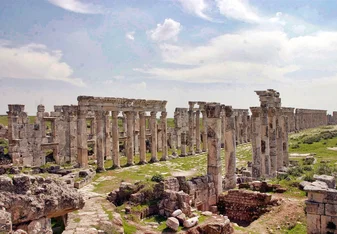Volunteer in Lebanon
Volunteer Programs in Lebanon
About
Lebanon, facing one of the largest refugee crises in the world, has a massive need for international volunteers. Since the Syrian War broke out in 2011, more than one million Syrian refugees have fled to Lebanon. With no formal refugee camps for Syrians, they are living in cramped apartments, unfinished buildings and tents, and make-shift camps. As a result of the influx of Syrians, Lebanese cities are facing extreme congestion.
Lebanon is also home to many Palestinian refugee camps, where refugees often live in poverty and without necessary resources. Because of these two sizable refugee populations, most of the volunteer work needed in Lebanon today is centered around working with refugees to improve their situations.
Program Types
Many refugees in Lebanon are living in extreme poverty and children are not receiving a proper education. There is a dire need to work with both Syrian and Palestinian refugees in camps, shelters, and centers, where they are lacking education, legal resources, emotional support, economic resources, and safe living conditions.
Work with Refugees
About 1.5 million Syrian refugees reside in Lebanon, making up more than one-fourth of the total population, the highest number of refugees per capita in the world. According to the International Rescue Committee, seven out of 10 Syrian refugees in Lebanon live in extreme poverty. Many of the children do not attend school and are in need of emotional support due to trauma. Thus, much of the volunteer work in Lebanon involves working with Syrian refugees in a range of capacities. Volunteers can work with programs that provide economic support, legal services, skills training, emotional support, and assistance integrating Syrians into Lebanese society.
Teach English
Opportunities to teach English include teaching children as well as training Lebanese teachers. Many of the volunteer programs take place in refugee camps with Syrian or Palestinian refugees, or in schools in and outside of Beirut. Many refugee children rely on remedial education in order to pass an entry exam needed to enter the Lebanese public education system, and English-teaching volunteers are a crucial part in helping children achieve this.
Women's Empowerment
Like in much of the Middle East, women in Lebanon are societally viewed as subservient to men, often at risk of violence and exploitation, and do not have access to necessary support systems. Many volunteer programs in Lebanon work to provide women with emotional and legal support, crisis counseling, and education in entrepreneurship. Many of these programs are focused on helping refugee women in camps or centers.
Planning Your Trip
Lebanon is a country with a mix of ethnic and cultural groups with a strong cultural influence of the ancient Phoenician people. Lebanon also has a diverse religious makeup, with Shia and Sunni Muslims, Christians, and the minority Druze religion. Based on the mix of cultures and religions, the social norms can range from quite conservative to much more progressive. It's important to be prepared for both types of social environments when traveling to Lebanon. The Lebanese people place a strong emphasis on hospitality, so no matter what part of the country you go to, you can expect that they will try to make foreigners feel welcome.
Where to Volunteer in Lebanon
Many of the volunteer programs take place either in Beirut, or in other coastal cities, such as in Saida, the third-largest city in Lebanon located about 45 minutes south of the capital, or Tyre, an ancient Phoenician city in southern Lebanon. There are refugee camps and centers in all of these cities that are in dire need of volunteers. No matter where you are in Lebanon, you will be within a three-hour drive of Beirut sans road congestion, so you will never be too far from the US embassy or modern medical facilities should these resources be needed.
Housing & Accommodation
Many of the volunteer programs place volunteers in shared apartments, which is a great way for volunteers to get to know one another. Depending on where you are located, apartments may be cramped and have scarce electricity, water, supplies, and accessories. Some apartments, however, may come with a well-equipped kitchen, which volunteers are expected to use to provide meals for themselves.
Language Requirements & Tips
For many programs, it is only necessary to be fluent in English, especially if you are teaching English, but some knowledge of Arabic is always helpful. Typically, English is the language mainly used by volunteer teams but Arabic will be helpful to communicate with students and center staff you may be working with, depending on where you are volunteering.
Packing Tips
As with most Middle Eastern countries, in many areas of Lebanon it is expected that visitors will be respectful of the culture and wear clothing that is modest and covers much of the skin, especially at any religious sites. However, this definitely varies in many parts of Beirut, where there is quite the emphasis on style, fashion, and more modern-wear, particularly among women.
If you are traveling during the summer, you will definitely want a hat and sunglasses to protect from the very strong sun, and if you are traveling in the winter, something waterproof is essential. Lebanon can actually get quite chilly in the winters, so some warmer sweaters and boots are necessary items for that time of year.
Additional Tips
All U.S. citizens traveling to Lebanon will need a visa to enter. Visitors can obtain a one-month visa upon arrival at Beirut International Airport or another port of entry. This visa can be extended for a second month by applying at an office in Beirut. Travelers who hold passports that contain visas or entry/exit stamps for Israel will likely be denied entry into Lebanon and may be subject to arrest or detention.
Health & Safety
Before traveling to Lebanon, there are as health and safety precautions that foreigners should be aware of. Health-wise, getting the proper vaccinations and being careful about food and water that you consume in Lebanon is most important. For safety, it is important to be aware of any travel warnings the U.S. State Department might place on Lebanon before you go. However, even though some parts of the country may be higher-risk, such as the borders with Syria and Israel, there are parts of the country that are much more secure and volunteer programs are extremely cautious about where they send their volunteers.
Health
Before traveling overseas to Lebanon, it is highly recommended that foreigners receive Hepatitis A and Typhoid vaccines, and based on where they are going and how long they are staying, it may also be advised to get Hepatitis B and Rabies vaccines. It is very important to avoid drinking unpasteurized milk or tap or well water in Lebanon, as well as food that is uncooked and may have been washed in tap or well water. It is also advised to prevent bug bites by using insect repellent and covering exposed skin.
Before traveling to Lebanon, it is recommended that you check with your health insurance plan to make sure they provide overseas coverage. Doctors and hospitals in Lebanon often expect immediate cash payment for services, and they may deny service or refuse to release you from care until all payments are made.
Safety
While there are areas of Lebanon that are considered high-risk, most of the volunteer opportunities take place in very safe regions of the country. Program providers are very concerned with the safety of international volunteers and are careful that volunteers are only working in areas that are verified to be safe. Violent outbreaks are most common near Lebanon's borders with Syria and Israel, so it is highly advised that foreigners avoid those areas.




















